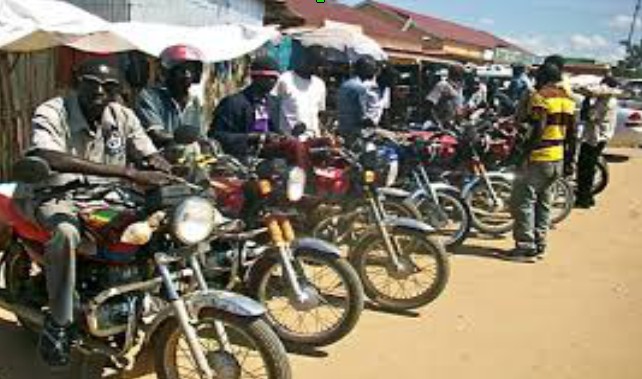JUBA, South Sudan — As motorbike riders protest the regulation of wearing helmets in Chad, ravaging the capital city N’djamena, and businessmen triple the price for helmets with strong resistance from the motorbike riders, it’s a different story in Juba south Sudan
From dusty roads to unshaded stages, rough roads to tarmac roads, hot weather to rainy seasons, polite customers to rude customers, drunk drivers to disciplined drivers. This is the way to go for many of the unemployed youth, between survival and starvation in Juba.
“Life has never been easy to my side. I wake up every morning and try to catch up with the early travelers who board to Uganda,” recounts one such motorcycle rider.
He is one of those who hustle in the bare heat of Juba since he set his feet in the South Sudanese capital. Since the slow evolution of motorcycles in Juba starting with the famous Senke Tembo brand and then the Ling ken/Hiadjin brands, TVs brand, and now the most-desired soft-cushioned Bajaj Boxer model.
People who came from the countryside have lived on petty jobs like building houses using muddy loam soil, most of whom had an East African educational background, which was a second thought in employment requirements to the Arabic background during the old Sudan days. Living up to the promise of buying a motorcycle seems a dream come true to most youth, who are employed in competitive and self-sacrificial jobs in these busy streets of Juba.
The cost of living is one they focus on, and the standard of living under the scorching sun depends on the ability to satisfy your customers’ needs with early morning motor checks, riding the rough dusty roads, dodging speeding vehicles which sometimes break traffic laws knowingly, though not on the list of vehicles to be given way, as are police, ambulance and fire-fighting vehicles. People move reluctantly and the own reckless riders of the well-known big blown heavy pair of short lovers (the Senke boys/Juba Boys) bending on one side of the cleanly maintained motorcycle with loud music speakers booming hip hop and accelerating as if it were the last race they will ever have, with the trademark sound of blocked exhaust pipes or an open exhaust with a wide cut.
Most of the riders do not have a driver’s license. But it is a relatively cheap way of living in Juba and provides a sufficient wage for their hard work, charging a fare averaging from five South Sudanese pounds for a shorter distance to over ten for longer distances, and basing the prices on the high prices of goods in Juba. The biggest happening that the bike boys always feel disturbed by is the frequent visits by the well-known South Sudan Motorcycle Boda-Boda Association (SSMBA), which they called the Abraham Men, to collect 50 SSP monthly for the parking stage — or what they called the rent fee.
“It’s often a struggle when they come. They try to take all the keys and demand the receipts of payments,” exclaims one rider who also said this always causes them to scratch their heads, as the money is not reinvested in the rehabilitation of roads.
The struggle gets harder and harder by the day, as all will be struggling to reach a minimum of 60 SSP per day, reaching out for rude customers who shout commands on a very hard knock voice and directing you to violate traffic laws to catch their appointments. Negotiating between vehicles and risking arrest from the traffic police, accused of causing most of the accidents in the city, and even the government designating some “no go” routes for the motorcycle riders, they all are struggling to live on the better side of Juba and wishing to get to a better job one day by feeding themselves on the streets of this sunny, hot and dynamic Juba city, putting bread on the table and never relaxing because of the demands of survival.
Whenever a disciplined and charming customer comes on board, gives a smile and says, “Take me to Konyo-konyo market,” then you can probably be sure that the day is a completely fine day for the family… Till then.
By Taban Ronald Setimo
